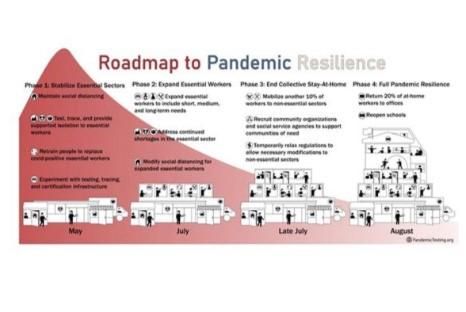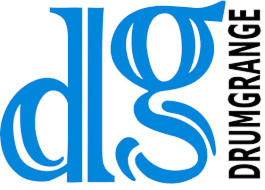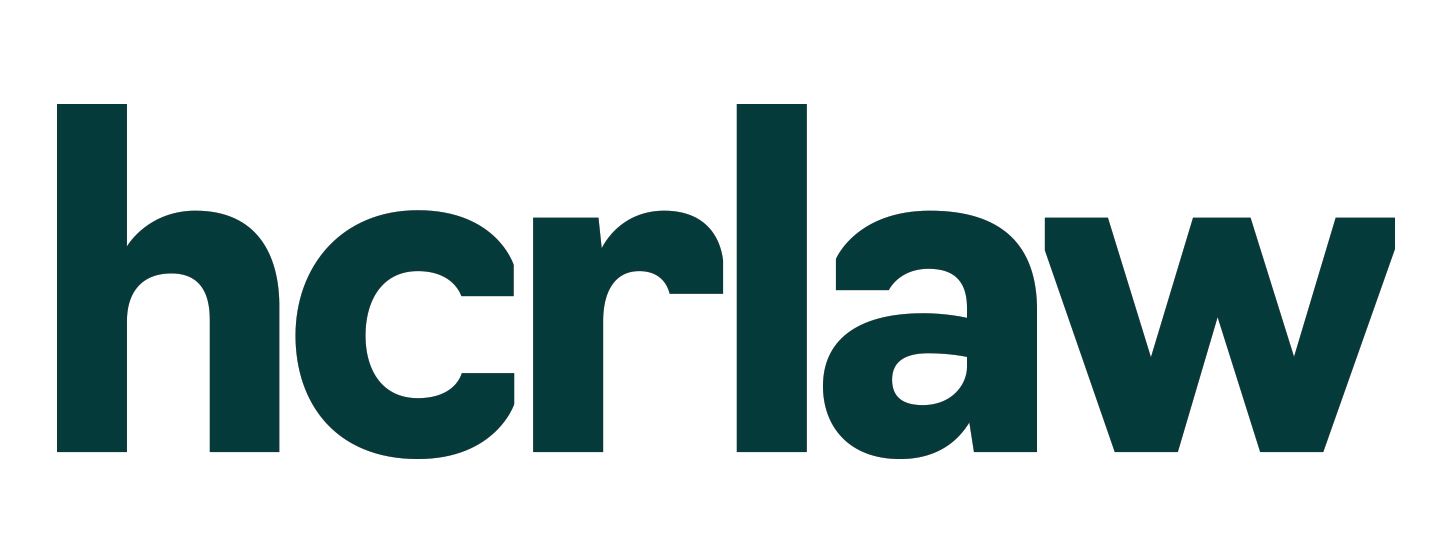THE SECURITY IMPLICATIONS OF THE GLOBAL ECONOMIC MELTDOWN
)
Visiting Professor of Global Economics and Security, NMITE Hereford
Former Senior Defence Economist and Adviser to Secretary General, NATO
The Present and Future Cost of the SARS-CoV-2 Pandemic
The SARS-CoV-2 global pandemic is maintaining its deadly and unrelenting grip. The prognosis is both uncertain and profoundly insecure with extraordinary economic contraction occurring on both sides of the Atlantic and across the globe. Global GDP may decline by a barely imaginable $15-20 trillion during 2020 to 2023.
The Sixteen Trillion Economies
To understand the scale and catastrophic impact of this contraction, 2019 nominal global GDP is estimated to have attained $90 trillion with the 16 principal contributors to this total (national GDP above $1 trillion) comprising: the United States $21.5, China $14.2, Japan $5.2, Germany $3.9, India $2.9, UK $2.8, France $2.7, Italy $2.0, Brazil $1.9, Canada $1.7, Russia $1.6, South Korea $1.6, Spain $1.4, Australia $1.4, Mexico $1.3 and Indonesia $1.1.
These countries account for over $67 trillion, more than two thirds of global nominal GDP, and represent the locomotives that drive and shape world economic progress and prosperity.
The Unfolding Cataclysm
Various scenarios can be postulated as the global economy continues to unravel with the evolution of the pandemic. By no means the severest of regularly updated projections is the prediction that the US economy could contract by $5 trillion and Europe (including the UK) by $4 trillion during the next 3 years. Such a contraction could bring potentially additional unemployment of 15 million in the United States and 10 million in Europe.
The Fatal Epidemiology of R
The future spread or containment of the pandemic is represented in the R number or virus reproduction rate. The mathematics of epidemiology is significantly more complicated than simply this number but government decisions on the relative risks of relaxing social and economic lockdowns are publicly communicated through the need to bring R less than 1. Currently and with considerable uncertainty, R is dangerously close (or above) 1 in Belgium, UK, US, France and Italy with ongoing dangerous fragility in Spain. The recovery outlook for Germany has become less certain. The true rate of infection in Russia and China remains problematic. Elsewhere, some countries have perhaps avoided increasing infections and the spread of the virus, with Taiwan, New Zealand and South Korea being notable examples.
Summarising the Security Implications of the Global Economic Meltdown
In an online presentation during the first week of May to the Economic Policy Directorate, International Strategy and Global Governance team of the UK Department of Digital, Culture, Media and Sport, the principal issues underpinning “The Security Implications of the Global Economic Meltdown” were discussed with subsequent slides.
A brief synopsis of the arguments was prompted by a pivotal question from a Swedish friend. How can the UK government balance the relative health and economic risks of relaxing the lockdown, recognising the high probability of another viral wave (with viral mutations that may make such subsequent waves even more deadly)?
The intensification of the national and international debate over this complex decision comes as Covid-19 is accelerating in some countries and regions with daily disturbing and grim increases in deaths and rates of infection in South America, notably in the growing mortality rate in countries such as Brazil and Venezuela, creating despair and fear and accelerating infections that overwhelm fragile health and healthcare systems.
The Roadmap to Pandemic Resilience

The above chart is the work of Nobel Prize Winning economist Paul Romer. His timeline is for the US but although the populations are greatly different (the US population is five times that of the UK) there are some disconcerting similarities in terms of regional variations and tensions between politicians and scientists.
The Road from Wuhan
The disastrous tragic response to, and management of, the unfolding pandemic since the January outbreak in Wuhan in the Hubei province of China is the genie that cannot be put back in the bottle.
Both the US President and the UK Prime Minister are culpable. In the case of President Trump, the mistakes have been glaring and destabilising. Misleading messaging and miscommunication (“Keep America Great”), the antagonistic blaming of China and the World Health Organisation, the distraction of the November presidential election (fuelled by anxiety over the enormous and unprecedented Covid-19 induced recession) have been symptomatic of egoistic leadership and erratic decision-making.
These weaknesses have been mirrored in the post Brexit populist stance of a Prime Minister whose personality and leadership style have also led to distracted and inconsistent decision-making.
The Immediate Outlook
The grim global economic contraction and depression in 2020 (potentially more than 30%) can be expected to continue in 2021. The May 2020 economic outlook of the Bank of England will prove to be far too optimistic with rising unemployment and reduced incomes continuing in 2020 and 2021. The rapidly growing UK public sector deficit is expected to reach more than 12.5% by the end of 2020 compared to approximately 7% in the aftermath of the global financial recession in 2010
Across the globe, many developing and fragile economies are increasingly vulnerable to the pandemic with mounting global poverty, famine, disease and social and economic misery that can trigger rising violent extremism.
The Pandemic and Extremism
In a paper authored by Kristian Blickle entitled "Pandemics Change Cities: Municipal Spending and Voter Extremism in Germany 1918-1923" (Research Report, Federal Reserve Bank of New York, May 2020) a compelling link between the 1918 global pandemic and the subsequent rise of extremism is analysed.
The central argument is that German influenza mortality during 1918-1920 was associated with lower per capita municipal spending in cities and areas that had been especially affected by the pandemic. The disastrous consequences included a severe decline in public services particularly important to, and consumed by, young people.
The Influenza mortality statistics in relevant city and urban areas are revealed to be correlated with the voter share captured by the National Socialist and other extremist parties during 1932 and 1933. This conclusion is not undermined by the many other variables that were influential during the 1920s including the collapse of the Weimar Republic and hyperinflation.
The Defence and Security Conundrum
During 2009-2011 NATO Europe defence budgets fell by some $12 billion from $278 billion (by comparison, in the same period, US and Canadian spending declined from $794 to $746 billion) in the wake of the global financial and economic recession. The slow upward increase in NATO defence spending was propelled by the 2014 Russian occupation of Crimea and continuing support for the ongoing insurgency in eastern Ukraine.
In 2019, NATO Europe recorded $289 billion defence expenditure, but the Coronavirus pandemic could considerably change the public sector spending priorities of NATO member states. It is entirely plausible that during 2020-2021, NATO European defence budgets could decline by at least $50 billion. The irony of such a defence contraction is that an even greater decline in GDP across the Alliance could propel many additional NATO members above the talismanic 2% defence spending/GDP ratio.
Remedying the Apocalypse
What is to be done to mitigate this unfolding economic and security disaster? The imperfect remedies for this apocalypse are essentially threefold:
1) Central banks and Treasuries (including the European Central Bank) must continue to print money, buy paper debt and act as global spenders of the last resort
2) Low interest rates will for the time being ease the burden of government debt financing. However, rising corporate debt will reach unsustainable levels and governments will be further burdened by bailing out the corporate sector and being forced to write off loan guarantees. The consequences of these measures will undoubtedly be severe after the pandemic has been brought sufficiently under control. Controlling public expenditure, determining the timetable, magnitude and distribution of taxation without torpedoing a slow economic recovery, are critical elements to sustaining the lifeline of economic policy and management during the next few years.
3) Global scientific cooperation and sharing must be intensified to develop a vaccine and effective antiviral drugs that will lead to worldwide vaccinations (optimistically from 2021 onwards) in time to stave off new (and possibly more virulent) waves of Covid-19 as well as seasonal flu
4) Economic and scientific cooperation on the scale and overwhelming urgency required will demand leadership (female and male!) that overcomes fatal negative sum non-cooperative game behaviour and dangerous nationalism and economic isolationism.
5) The preeminent international organisations (including all relevant UN development agencies, the IMF, World Bank, OECD, World Health Organisation, the International Organisation for Migration, the Intergovernmental Panel on Climate Change, the International Energy Agency and, critically, NATO) must create new mechanisms for the collective exchange and sharing of information that will ensure optimal decision-making in drawing the threads of fragile human existence into holistic security.
Preliminary Conclusions
A fundamental profound transformation in global economic thinking, behaviour and action is required to mitigate the Coronavirus catastrophe and lay the foundations for a better and more resilient global economic and health care future.
Unprecedented financial investment and action must be combined to not only prepare for future pandemics but also to prevent further global environmental destruction that has been accelerated by global warming and climate change insecurity.
Environmental destruction is the source of the holistic insecurity that is created by the disruption and migration of species and people from fragile habitats (sowing the seeds of pandemics, violence and hunger) and further noncooperative nationalism and dangerous insecurity.
These challenges necessitate an urgent and insistent revival and reinvigoration of global leadership and international cooperation and sharing (PPE, testing, antiviral drugs and a possibly elusive vaccine). In the absence of such leadership and cooperation, the present disastrous pandemic will accelerate into a catastrophic collapse of global security and the impoverishment of billions of the global population.
Adrian Kendry, 16 May 2020










.jpg)




